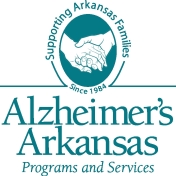Think about your favorite movie. Chances are the main character, the hero in that movie, probably faced a challenge that seemed insurmountable.
What makes a hero is facing that insurmountable challenge and finding a way to do something, anything to meet it.
Heroes are brave.
People diagnosed with dementia and their caregivers are brave. There is so much more than the neurological diagnosis for families to address. It includes learning to take a personal tragedy and then by adapting their lives and working together or alone they create a life far different from former expectations.
It involves pushing aside negativity frequently, accepting the losses, learning about dementia, caregiving and care-receiving. Education is a must, but there is no silver bullet that solves all communication and caring issues…it is more like silver buck-shot. Support groups are one of the best learning tools. We learn from one another about what worked and what flopped in our efforts to improve quality of life for our loved ones. We learn that “normal” is only a setting on the clothes washer, and that each person will continue to be unique and no two will progress or experience the same symptoms in dementia world. But our beliefs and experiences will color our world and assist others in their journey.
Arthur Klineman speaks knowingly when he writes: “We have each of us gone through feelings of loss, anger and frustration. We have been marked by a special kind of pain. But we have also experienced a deepening sense of responsibility, gratitude for all that we had lived through together, love, solidarity, and a shared sensibility that we have resisted what is beyond our control and are, individually and collectively, more for it.”
Klineman defines care giving as ”…a defining moral practice. It is a practice of empathic imagination, responsibility, witnessing and solidarity with those in great need. It is a moral practice that makes caregivers, and at times the care-receivers, more present and fully human.”
The task is not easy. The disease saps energy, and makes the possible seem impossible. Words and actions create oceans of tears, mountains of guilt and quakes that divide families as caregivers struggle to manage the difficult decisions, the financial problems and attempt to understand those who turn their head and will not care. But, according to Kleinman, “…out of the billions of ordinary acts of care giving comes much of that which… sustains the world.”
Need more info?
email or call us at elise.stuart@alzark.org or 501-224-0021


